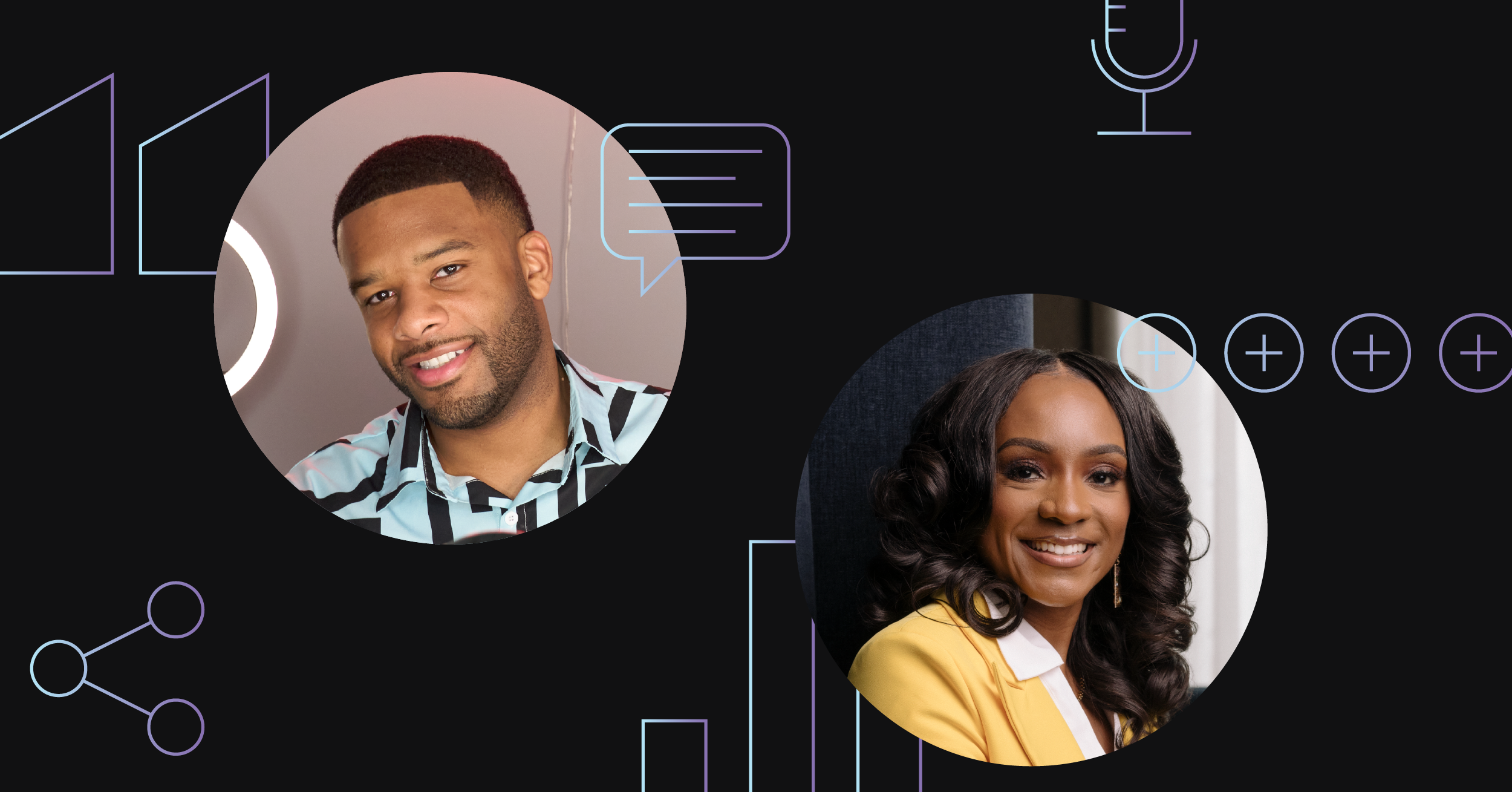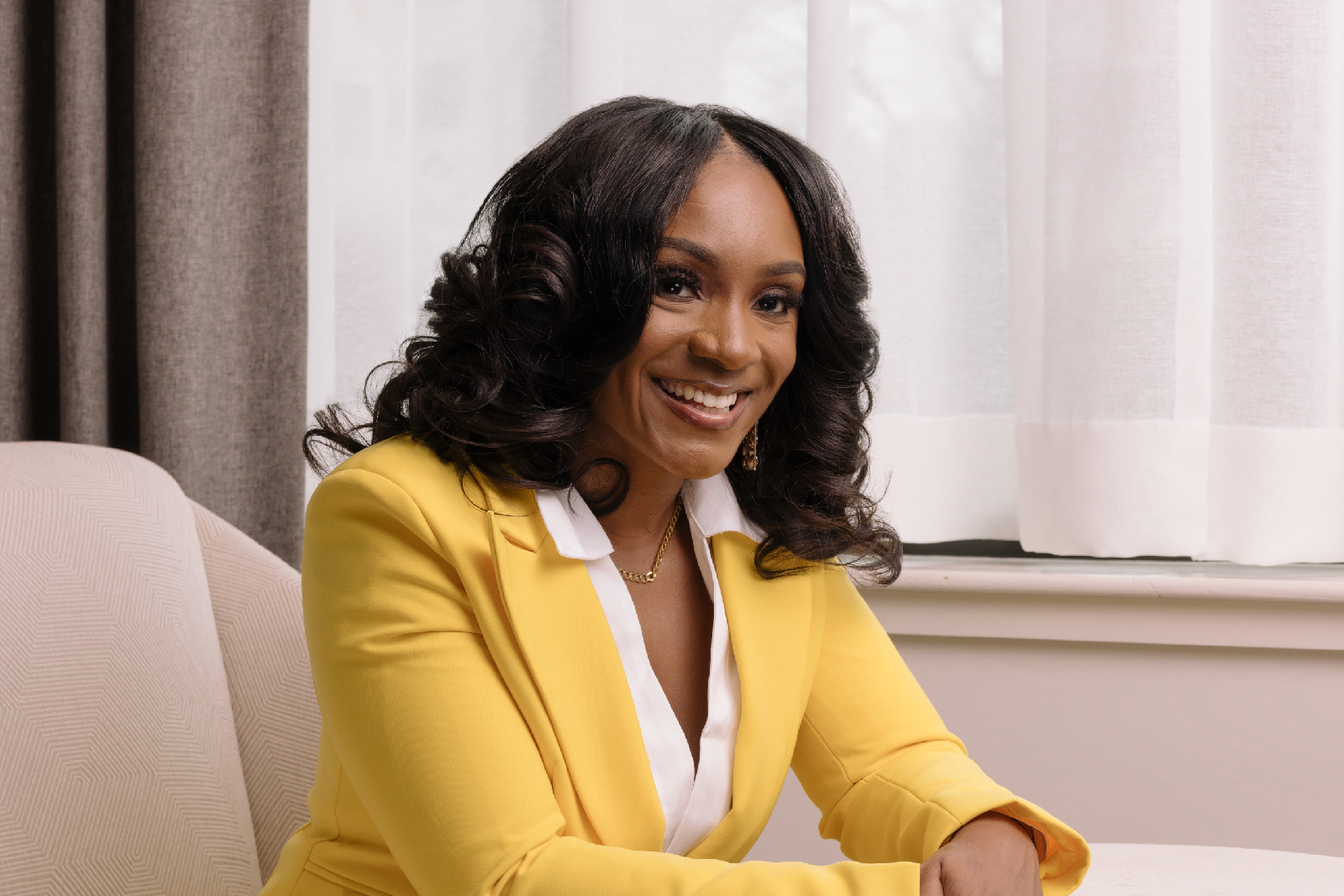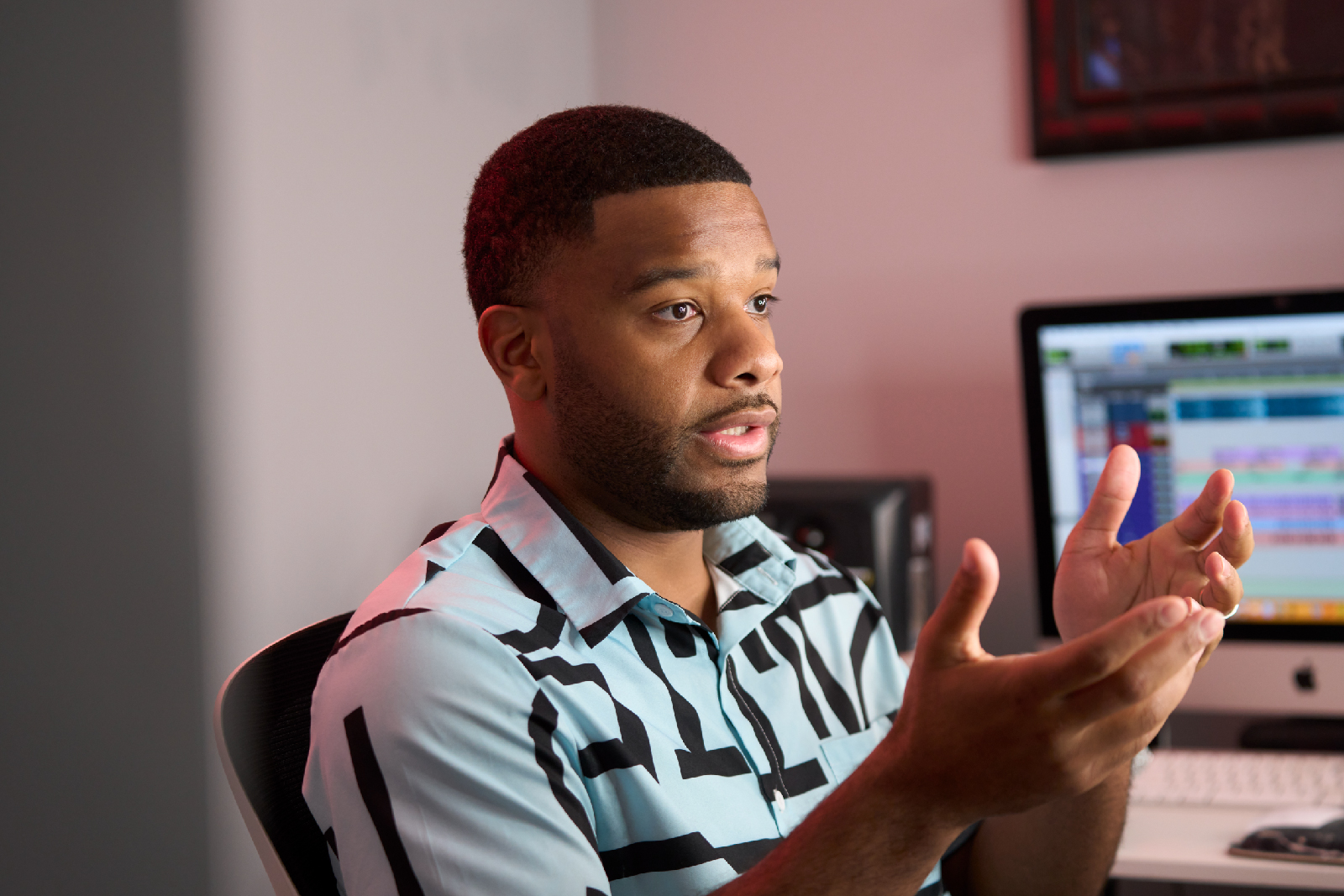Investing for a Future
Why Black wealth matters. How these financial educators are building a new generation of wealth.

Investing in community is not just about giving back by donating resources, but also about fostering financial literacy in communities that have historically been excluded from the investment world. Veronica Peterson, a senior product engineer at Morningstar, recently sat down with two popular personal finance educators—Ashley Fox and Shareef “Ross Mac” McDonald—who are inspiring their growing audiences to invest in their future. The three spoke about Black America, starting out on Wall Street, and creating intergenerational wealth. “We are five laps behind in this wealth race,” says Mac. Here are excerpts from the conversation.
Veronica Peterson: One of my reasons for working here at Morningstar is because of our mission to empower investor success. But if I can be honest, my personal interest was so that I could learn finance. I did not come from a family who had that background or expertise in investing, and I think that’s common in our community. Why did you decide to go into finance?
Ashley Fox: I am from Philly. I am the first person in my family to go to college, and I decided to go to the best HBCU in the world, Howard University. I majored in finance because I liked math and business. We were taught how to dress. Every Tuesday and Thursday, we had to wear black and blue suits. They taught me how to eat, build a résumé, golf, everything.

There is fear because of generational trauma and habits that have been passed down.
Ashley Fox
I wanted to be rich and look good if I’m being honest. At Howard, I had four internships with top financial institutions. I worked with millionaires and billionaires, so I got exposed to what the wealthy people do with their money, from where they shop, where they travel, where they live, everything. As I started to immerse myself in this world, I realized that it was completely different from how I was raised. By the time I was 23, I was making six figures, and people thought I was rich. I’m traveling, I’m wearing the nice clothes.
So, I essentially went into finance to make money. I left Wall Street almost 10 years ago because money, something we use every single day of our life, is not taught in our school system. You shouldn’t have to major in finance, work on Wall Street, to get exposed to that information. I always wanted to be a teacher, but teachers didn’t make Wall Street money. But I ended up being a teacher. I teach financial education.
Ross Mac: One thousand percent, it was all for the money. Coming from the South Side of Chicago, this was the next best thing to going to the NBA. It was all about trying to make the most amount of money by working at Morgan Stanley, being on Wall Street, being on a high-revenue-generating desk.
The greatest teacher isn’t necessarily what we’re taught, but what we’re exposed to. I was exposed to a lot of secrets just walking down the aisle, seeing executive directors or managing directors checking their 401(k). Going to UPenn, I’m seeing kids day trading in the middle of class. I’d never even seen people trade in my life. That’s what made me want to start investing.
I ended up coming back to my hometown, where I worked at a hedge fund, and I’m hearing conversations that people that look like us aren’t privileged to. I wanted to find a way to bring the experiences that I had back to the community. It’s all about trying to help liberate our people. How can I take the secrets that I learned on Wall Street, both informally and formally, and bring that back to our people? How can I make learning about finance exciting and more easily digestible?
Overcoming the Past
Peterson: Financial literacy is on the come-up. You’ve got podcasts like Earn Your Leisure, Wallstreet Looks Like Us Now Network, and now your platforms, Maconomics and Empify. In the Black community, I’m seeing this surge of thirst for the knowledge. But according to the Federal Reserve, only 44% of Black Americans have retirement savings accounts, with a typical balance of $20,000, compared with 65% of white Americans, who have an average balance of $50,000. Ross, in Get Smart With Money, there was another stat that stood out to me: Black Americans own just 2% of stocks. Can you share some reasons why Black Americans invest less?
Mac: To truly understand those stats, we’ve got to understand where we come from. Let’s look at all the things we have to overcome. Wealth effectively has been strategically taken from us, from slavery to Jim Crow. Look at the Black Wall Street massacre. We were thriving, then people come in hating. Guess what? That was the largest domestic terrorism to ever happen on U.S. soil. Look at the Freedman’s Savings Bank. All right, we’re free, we’re putting our money in the bank. And guess what? The people that ran the bank unfortunately didn’t look like us, and they were doing Sam Bankman-Fried level investments with our money—bad investments.
Think about the lack of wealth that we had intergenerationally. Think about redlining: Our ancestors were not able to own homes that effectively appreciated in value. Once we started getting real estate, think of the predatory loans.

I didn’t come from generational wealth, therefore I have to be the first person to create it.
Ross Mac
A lot of people are in survival mode. Ashley talked about being the first person in her family to graduate college. But then we also have more student loan debt—because our ancestors weren’t able to pass down that home.
The blueprint of becoming wealthy is slow and steady, benefiting from compound interest. However, tell that to a person whose parents don’t have a lot of money, who is the golden goose in the family. They have so much anxiety when it comes to building wealth, because they are in an “I got to do it now” realm. So, they start taking riskier bets, putting 100% of their portfolio in dogecoin, in shiba, or in NFTs.
We are five laps behind in this wealth race. We also are overindebted, and we unfortunately are spending more than we are investing. We are consumers first before we’re owners. Those are the challenges that our people continue to have.
Fox: We passed down generational debt, generational trauma, and generational habits, where our counterparts passed down generational wealth. Working on Wall Street, I saw how you could avoid taxes by skipping generations and passing your wealth down. People always ask me, what’s the difference between working with millionaires and billionaires and the average person? Wealthy people have an expectation of greatness. They have an expectation that I am going to avoid taxes, I am going to sustain my wealth, and I am going to sustain my power.
If you understand the game that is played, you can play the game. But there is fear because of generational trauma and habits that have been passed down. It’s about recognizing that money was not passed down to me, but I’m going to be the one to pass down money to my family. I may not have had the opportunity to go to school for free, but now I’m going to make sure that I’m setting money aside every single month for my child.
You can learn how to buy a stock. It’s not hard. People are not missing the skill, people are missing the will. You have to be willing—despite where we live, what we’ve been through, what we continue to see in our environment—to say, either I’m going to leave this country or I’m going to learn how to win in this country. The more individuals like myself and Ross are in people’s minds in a relatable, tangible, easy, and digestible way, the more it starts to shift. While those stats say a lot of people have not invested, now people are wanting to invest, so much that they’ll go buy our programs.
I run the WealthBuilders Community app, which is the technology platform Empify uses to get our education out to adults all around the world, and we invested over $2.5 million last year. This is their money, the accounts they opened. It’s not that we don’t have the money, because Black people have mastered the art of spending money. We have the money. It’s just that we have to recognize that we can take this money and instead of just giving it to Amazon, buy Amazon stock, too.
Building the Future
Peterson: Can you share your vision of where you see your platforms going?
Mac: Some of the work that we are doing—Ashley and I and many peers in the industry—is a digital civil rights movement where we are now focusing on, as my brand says, “Black Wealth Matters.” I didn’t come from generational wealth, therefore I have to be the first person to create it. There has to be one person in every family tree who says, “My parents didn’t have it, so I got to start it.” What type of content is going to switch on a light bulb in a certain person’s head?
My thing is continuing to have the conversations that effectively have been taboo. People will talk about who’s a better basketball player, but how often are we arguing in the barbershops who is a better CEO? Would you rather put money in Amazon or Apple or Tesla or Microsoft? It’s about making people more comfortable talking about the things that were never taught to them.
Fox: When I think about Empify in the future: What Kleenex is to tissues is what Empify is to financial education. The ultimate goal is to get to a space where we can partner with companies—which we do, but on a massive level. If you want our audience to be financially educated to be qualified for your product or service, you go through Empify.


/cloudfront-us-east-1.images.arcpublishing.com/morningstar/WDFTRL6URNGHXPS3HJKPTTEHHU.png)
/cloudfront-us-east-1.images.arcpublishing.com/morningstar/IFAOVZCBUJCJHLXW37DPSNOCHM.png)
/cloudfront-us-east-1.images.arcpublishing.com/morningstar/JNGGL2QVKFA43PRVR44O6RYGEM.png)